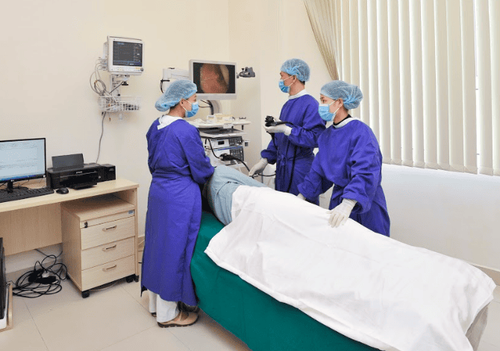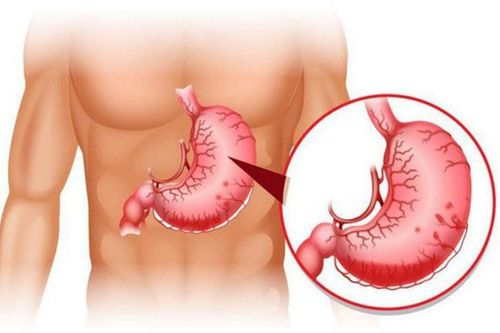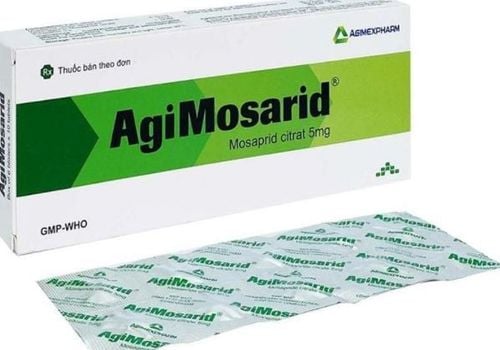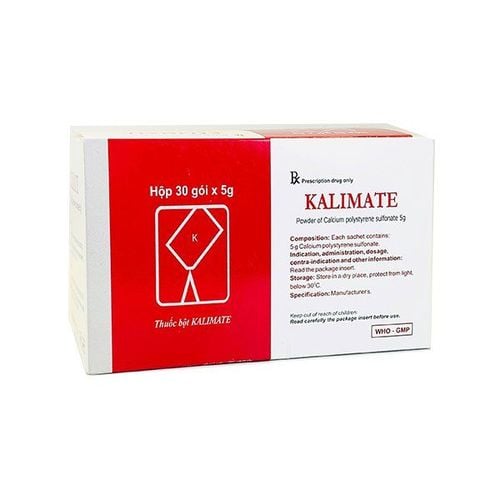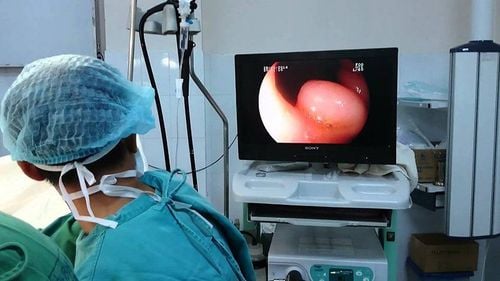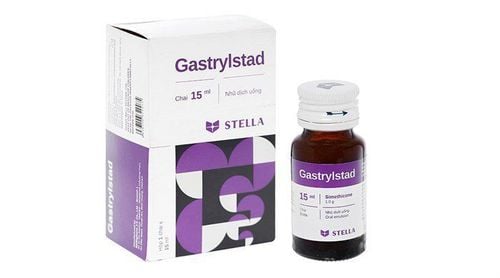This is an automatically translated article.
The introduction of capsule endoscopy in 2001 opened a new chapter in the examination of the small intestine. It allows investigation of small bowel abnormalities such as erosion, ulceration, vascularity, petechiae, lymphadenopathy, erythema, edema, villi changes, and extrinsic spasms. In particular, laparoscopic capsule surgery is a surgical method that generates much interest.
1.What is laparoscopic small-bowel surgery?
The small intestine is a segment of the digestive tract, with an average length of 5 - 9m, connecting the large intestine and the stomach. Usually, this is the part of the intestine that gastroenteroscopy and colonoscopy - rectum. could not be surveyed.
Capsule endoscopic small bowel surgery is performed by an endoscopic capsule with a size as small as 11mm x 24mm, inside is installed a tiny camera capable of recording 3 frames per second during the procedure. language. After being administered to the patient, the endoscopic capsule moves like food, thereby allowing to capture the entire lumen of the gastrointestinal tract starting from the esophagus - stomach - small intestine - large intestine.
The introduction of capsule endoscopy in 2001 opened a new chapter in the examination of the small intestine. It allows investigation of small bowel abnormalities such as erosions, ulcers, vascularity, petechiae, lymphatics, erythema, edema, villi changes, and extrinsic spasms.
2.Advantages of laparoscopic small bowel surgery with capsules
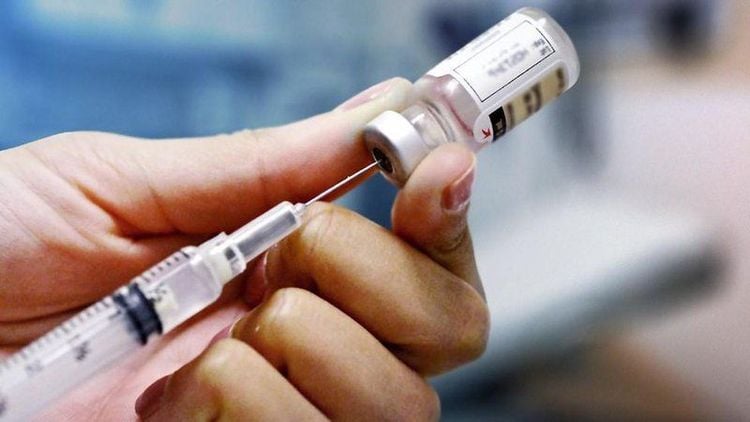
Phẫu thuật nội soi viên nang không cần sử dụng các chất gây mê và gây tê
Endoscopic capsule surgery has many outstanding advantages such as:
Non-invasive imaging method, does not cause discomfort to the patient. Easy to be eliminated through defecation Extremely clear image allows to clearly survey the esophagus, stomach, especially the small intestine, large intestine. There is no need to use anesthetic agents and anesthetics. Eliminates the risk of contamination from the instrument. Can be used in patients who are sensitive to other endoscopic methods; There are virtually no incidents and complications during capsule endoscopy.
3. Disadvantages of capsule endoscopic surgery
However, this surgery also has many limitations to be aware of:
The capsule circulates inside the gastrointestinal tract thanks to intestinal motility, so it may not be possible to survey the entire lumen of the intestine. Capsules can run out of battery due to weak bowel movements, or not look carefully if moved too quickly High cost.
4. Indications for surgery
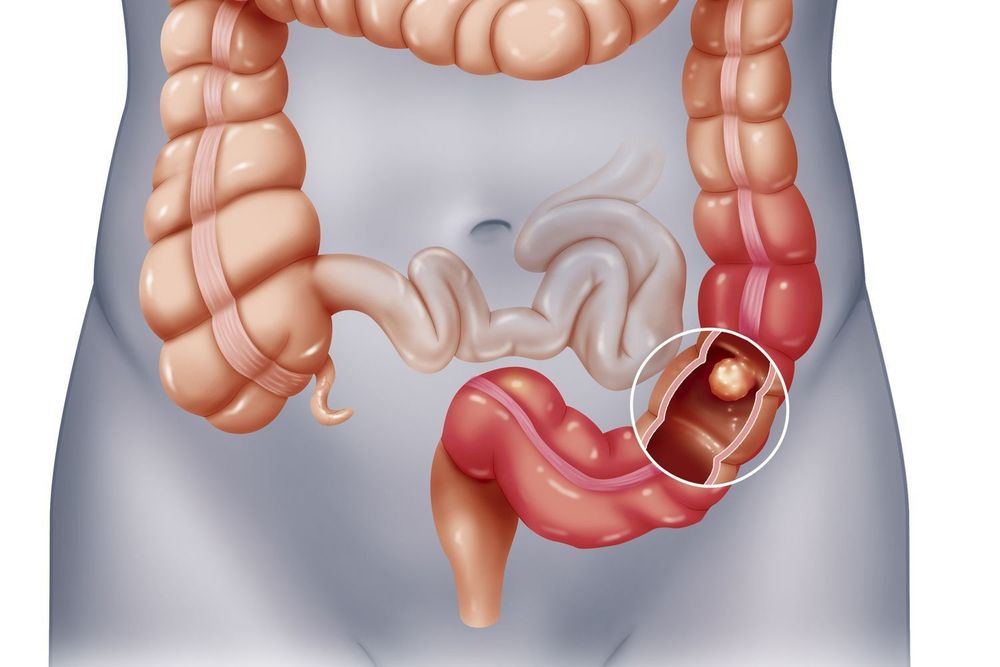
Bệnh lý tắc ruột chống chỉ định với phẫu thuật nội soi ruột non bằng viên nang
Indications Laparoscopic small bowel surgery with capsules is usually applied with the following goals:
Find the cause of gastrointestinal bleeding. Diagnose inflammatory bowel diseases, such as Crohn's disease. Tumor diagnosis: cancer, polyps. Diagnosing celiac disease Contraindications Despite many practical applications, endoscopic capsule surgery also has some contraindications as follows:
Patients with suspected intestinal obstruction, dysphagia
Should not be indicated in Patients who have undergone gastrointestinal surgery, are pregnant or are using a pacemaker.
5. What preparation is required before laparoscopic small bowel surgery with capsules?

Bệnh nhân phải uống thuốc nhuận tràng trước khi nội soi viên nang 12h
To increase efficiency as well as ensure patient safety, before performing laparoscopic small bowel surgery with capsules, you need to have the following notes:
Do not take iron products within 1 week . Patients must stop eating and drinking colored liquids such as milk, coffee, ... at least 12 hours before the procedure (can drink white water) Take a laxative (Sodium phosphate) before capsule endoscopy. 12h Before the endoscopy, the patient is not allowed to take any medicine Take the anti-foam simethicone 20 minutes before the colonoscopy The patient or the patient's family must be thoroughly explained and signed a written consent perform tricks
6. Risks of small bowel capsule endoscopy
Capsule endoscopy is a safe and low-risk procedure. However, like many other types of surgery, there are certain risks involved:
The capsule stays in your digestive tract. The rate of complications is very low, but may be higher in people with conditions such as tumors, Crohn's disease, or previous surgery in the area that caused the narrowing (tightening) in the digestive tract.
7. Care after surgery
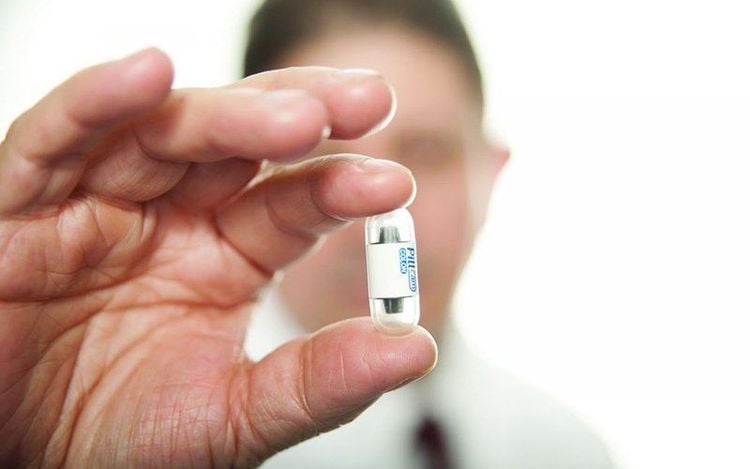
Trong 2 tuần sau phẫu thuật nếu không thấy viên nang trong nhà vệ sinh cần chụp X-quang để xem viên nang còn trong cơ thể không
Patients after endoscopic capsule surgery should pay attention to the following:
2 hours after swallowing the capsule, you can continue to drink clear filtered water. After 4 hours, you can have a light meal unless your doctor specifically tells you to. The capsule endoscopy procedure is complete in eight hours or when you see the camera capsule in the toilet after a bowel movement, whichever comes first. Remove the patches and recorder from your body, pack them in a bag, and follow your doctor's instructions to return the device. You can flush the camera capsule down the toilet. Once the procedure is over, your body may be able to get rid of the camera cover within a few hours or after a few days. Everyone's digestive system is different. If you do not see the capsule in the toilet within two weeks, contact the treating physician. Your doctor may order an X-ray to see if the capsule is still in your body. It can be said that laparoscopic small bowel surgery with capsules is one of the surgeries that bring accurate and safe diagnostic results, with few complications/risks for the patient. To make sure the surgery goes smoothly, strictly follow the instructions from the doctor from the pre-surgery to the post-operative care stage.
Periodic health check-ups help to detect diseases early, so that there are treatment plans for optimal results. Currently, Vinmec International General Hospital has general health checkup packages suitable for each age, gender and individual needs of customers with a reasonable price policy.
The patient's examination results will be returned to the home. After receiving the results of the general health examination, if you detect diseases that require intensive examination and treatment, you can use services from other specialties at the Hospital with quality treatment and services. outstanding customer service.
>> See more: Efficacy of small bowel endoscopy in the management and treatment of inflammatory bowel disease - Article by Doctor Mai Vien Phuong - Department of Examination & Internal Medicine - Vinmec Central Park International Hospital
Please dial HOTLINE for more information or register for an appointment HERE. Download MyVinmec app to make appointments faster and to manage your bookings easily.




